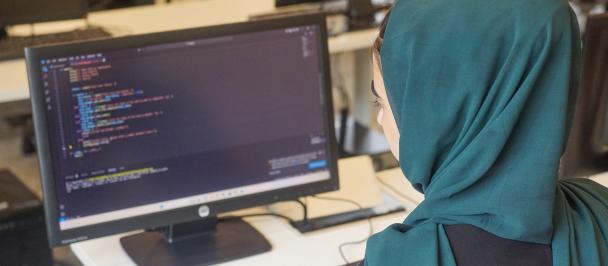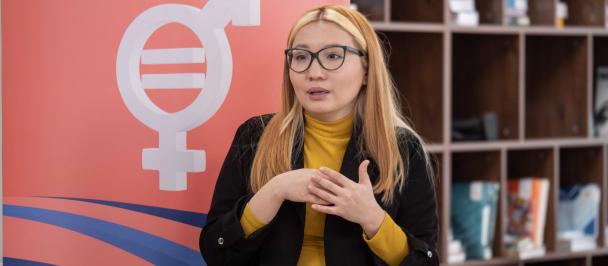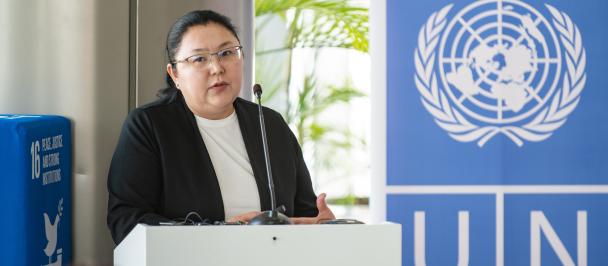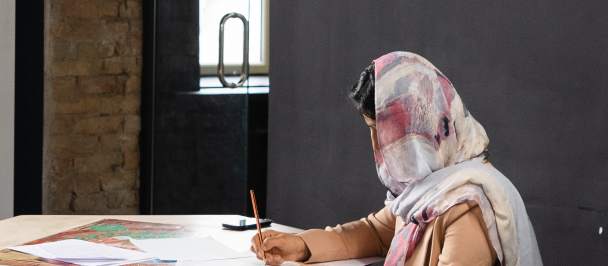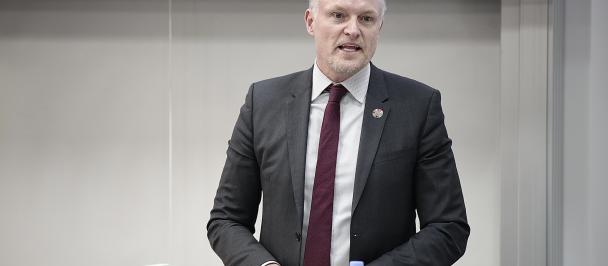Women Entrepreneurship: to equal access to high quality production
November 18, 2022
Nazgul Nassiyeva from Zhambyl region is passionate about developing her business: her company produces diapers for children with disabilities. Today, her products are sold in Taraz city and in several districts in the region. The entrepreneur hopes that diapers will be available in other regions of Kazakhstan in the near future.
“The company’s mission is to provide a quality and affordable product that is not inferior to imported counterparts,” she says.
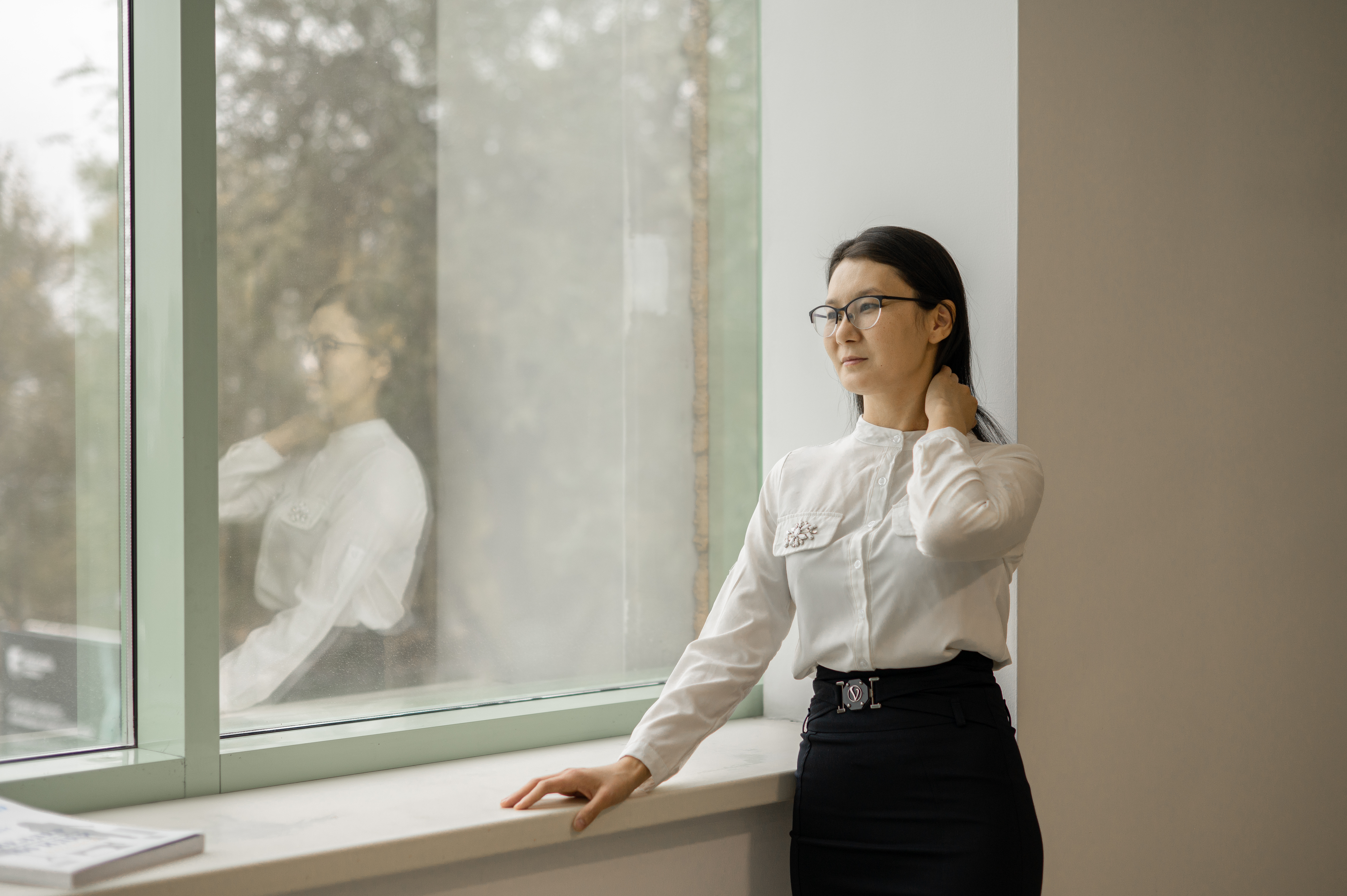
Nazgul Nassiyeva from Zhambyl region launched a company that produces diapers for children with disabilities in the spring of 2022
Nazgul is not new to entrepreneurship. Previously, she worked in the wholesale and retail trade and the restaurant business jointly with her husband’s parents.
“I’ve always been a businesswomen, but it’s only now that I decided to open my own business. My training at the Women’s Entrepreneurship Centre and my personal story put me on this path,” she says.
In early 2022, Nazgul learned about the Women's Entrepreneurship Development Centre, operating on the basis of Atameken National Chamber of Entrepreneurs throughout the country. There she met Gulmira Meterova, who advises women entrepreneurs in the Zhambyl region. Currently, almost 400 women from the region have already received business advice,and many have completed trainings and master classes in mentoring, fundraising, business valuation and in financial and legal literacy.

Gulmira and Nazgul met at the Women’s Entrepreneurship Development Centre, Zhambyl region
To date, centres that opened with the support of UNDP operate in 14 regions of Kazakhstan, and in the cities of Almaty, Astana and Shymkent. The number of applicants show that one third of the women who received assistance are from socially vulnerable segments of the population, almost 20 percent are mothers of large families. Every fifth woman who applied is from a village.
Women’s Entrepreneurship Centres opened in November 2021.

A woman can receive advice on social entrepreneurship in the Women's Entrepreneurship Centres
According to Nazgul, after several months of intensive trainings and seminars, she mastered social entrepreneurship skills and received training in marketing and finance.
“Thanks to the Centre my female entrepreneurial skills became more multifaceted,”
says Nazgul.
In 2022, 8,705 women applicants to the Entrepreneurship Support Centers have received services, including specialized training, training on entrepreneurship, cooperation, crowd investing, mentoring, business valuation, participation in women’s communities, as well as advice on selecting equipment.
Her personal story led Nazgul to open her own business: five years ago, doctors diagnosed her son, Alikhan, with “infantile cerebral palsy”. During rehabilitation, Nazgul experienced first-hand the difficulties that parents of children with disabilities have to confront every day.
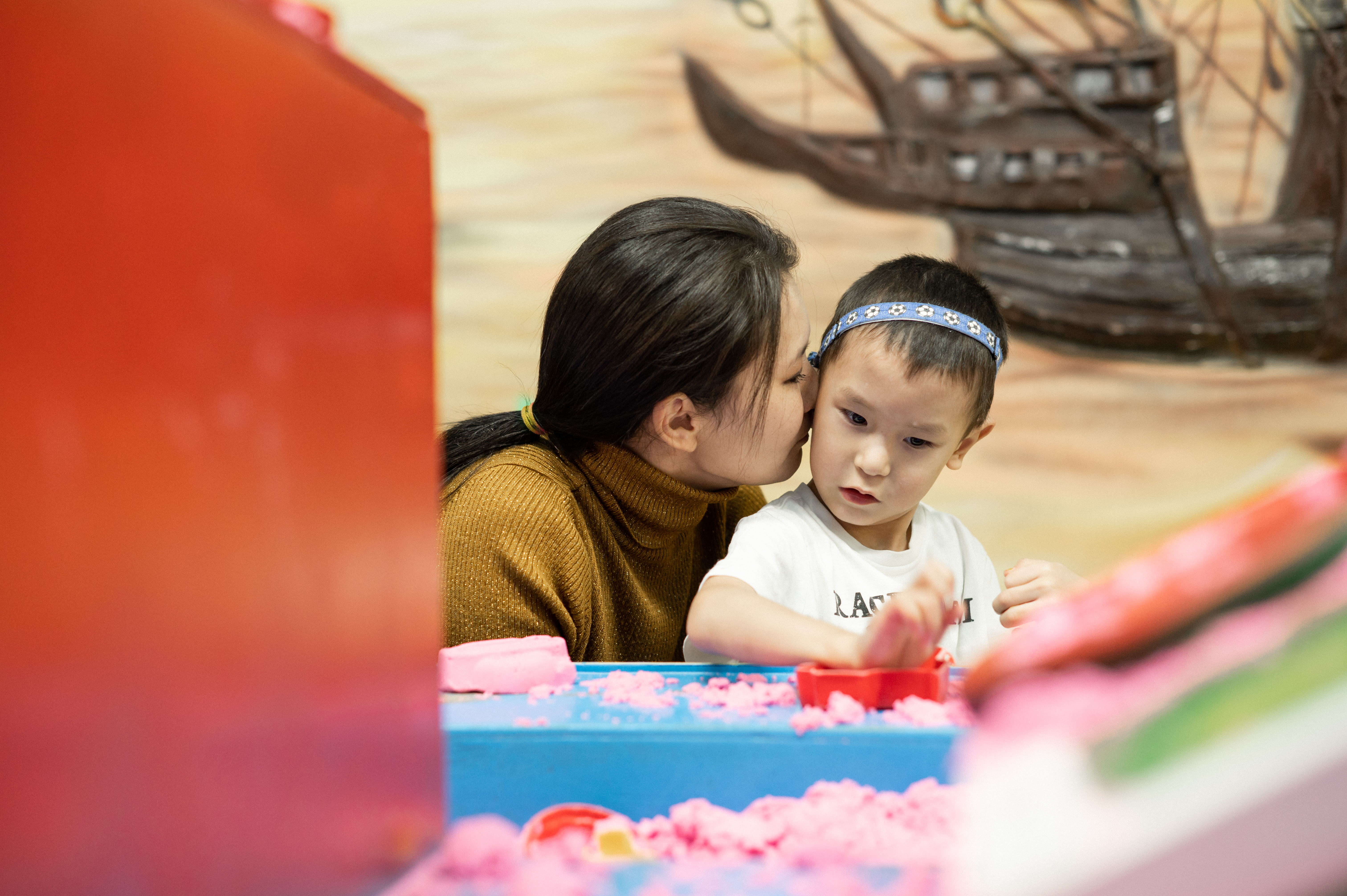
Nazgul with her five-year-old son Alikhan
“Alikhan is our second child. He was born prematurely with infantile cerebral palsy. Doctors later reported that he has a hearing loss. The chances that our son would ever speak were slim. For my husband and I the first two years were not easy. I became depressed and was in denial about my baby’s serious ailment. I thought, ‘How could this happen to us?’”, Nazgul recalls.


Support from her husband, family members, as well as therapy with a psychologist, helped Nazgul cope with the stress. The doctors helping with the rehabilitation of little Alikhan also encouraged her.
“In the first years of life, a child really needs parental support. Therefore, I could not ‘lose heart’ as a mother’s love and attention is the pivotal step in a child’s successful treatment,” Nazgul imparts.
Nazgul clearly remembers the moment when her child first uttered the word, “mom” – that was two years ago after Alikhan received a cochlear implant.
“The day our son said, ‘mom’ was a happy and significant one. I felt alive again and pledged to find a way to help children with disabilities,” Nazgul admits.
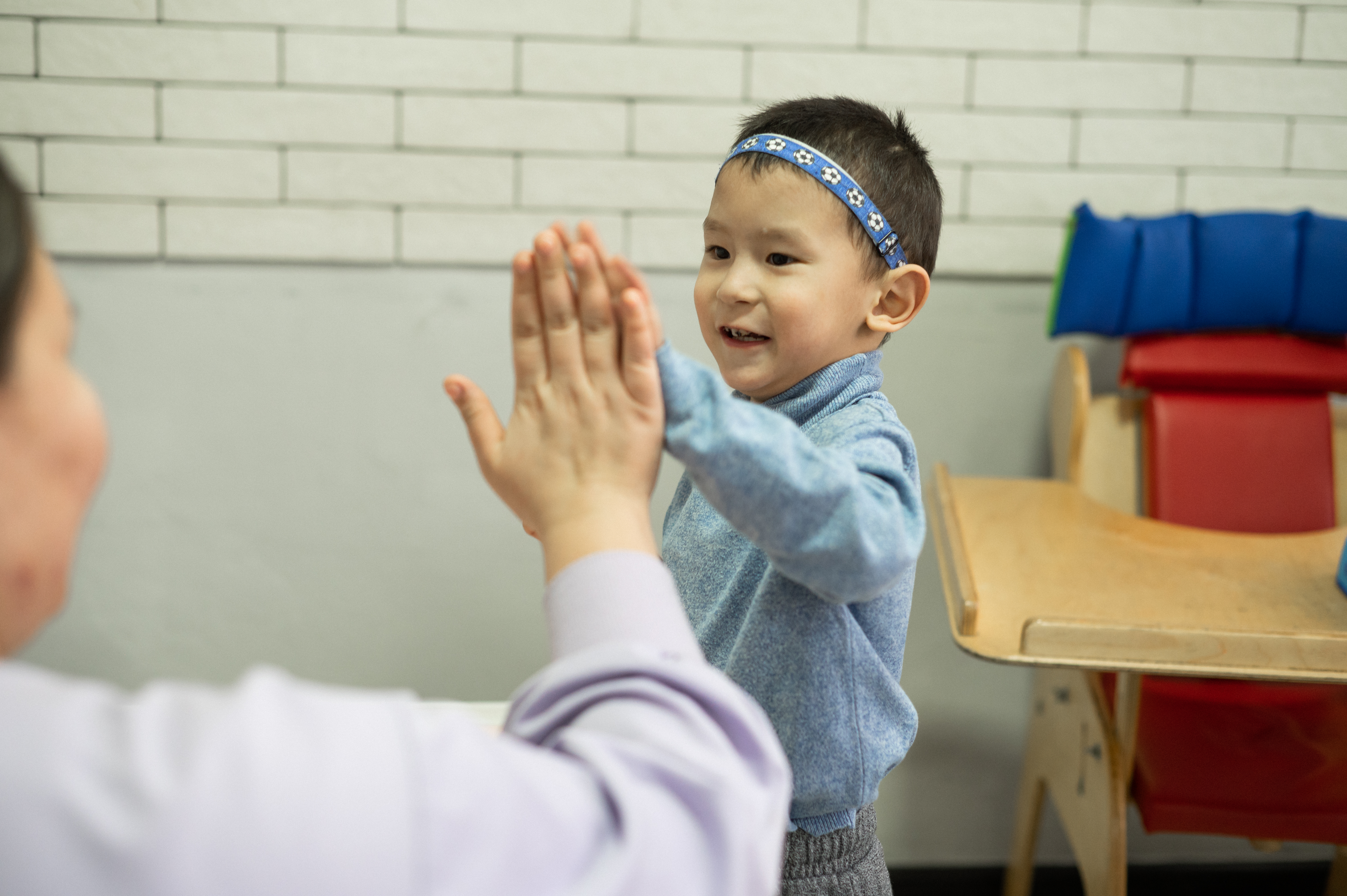

Alikhan is showing progress – two years ago, he said "Mom"
During Alikhan’s rehabilitation, Nazgul met women with similar children. She found that the lack of diapers, their high cost and poor quality was a common problem. Hence Nazgul’s decision to start producing diapers for the Kazakhstani market – high quality, at affordable prices.


The company of Nazgul cooperates with the world leader in the production of personal care products
“The diapers are made using Japanese technology. The manufacturing plant is in the People’s Republic of China, and is a global leader in producing personal care products, in cooperation with European Union”, notes the entrepreneur.
Today, the entrepreneur intends to develop a socially responsible business and to support families with children with disabilities.

In addition to entrepreneurship, Nazgul also provides psychological support to mothers of children with disabilities
“Our page on social networks is not about the company’s product, it’s aimed at giving psychological support to parents whose children have severe diagnoses. I experienced all this myself first-hand so I understand the importance of not panicking when your child is sick,” says Nazgul.
Currently, Nazgul and a team of specialists are creating a mobile application allowing mothers with children suffering from various forms of disabilities to form a partnership. This would allow women to become entrepreneurs and generate income and also to receive training in marketing and finance.
Nazgul’s husband, Nurlan, actively supports the business. They are raising two children and continuing their son’s treatment. Thanks to daily sessions with specialists, Alikhan has already learned to speak. He often spends time with his older sister Aiaru and other children.


Parenting and rehabilitation of Alikhan are a priority for Nazgul and her husband Nurlan
“Now my priority is my son’s treatment. I want him to be able to live an independent, decent life in the future and to find his calling. My business goal –that every child in the country can access high quality products. I’m sure we’ll succeed!”, Nazgul says.

The entrepreneur plans to develop her business that children have equal access to high-quality and safe products

 Locations
Locations